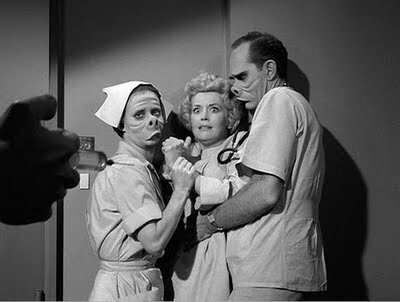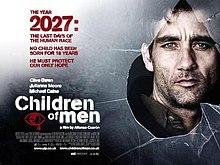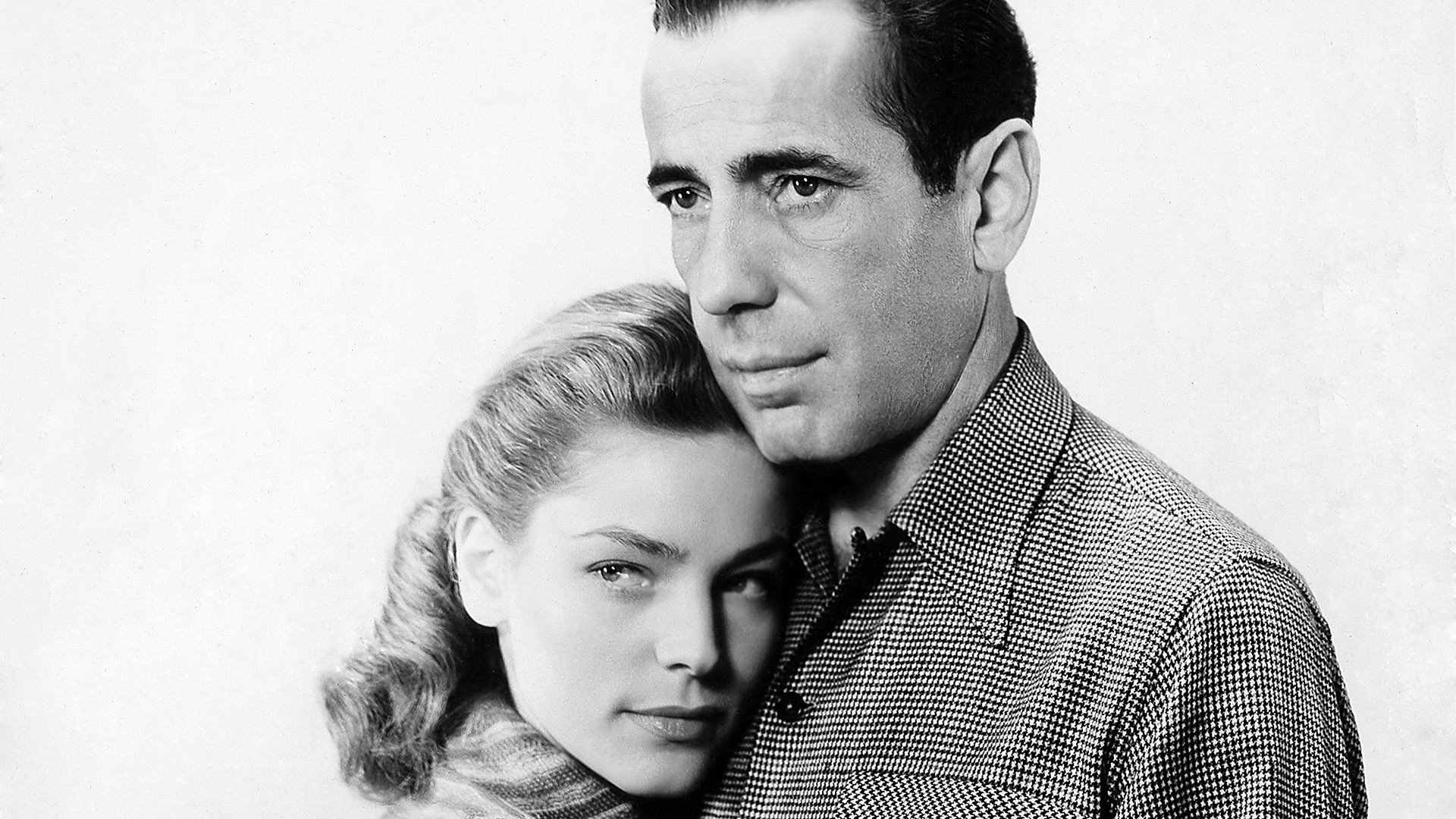I am sure that this post will inspire outrage among some because there is always a song that could have made the list. Nevertheless, do not mistake this for a list of the 25 best love songs, for there are a great many songs that might make the list before these. Rather, consider it a list of songs which seek to provide a unique angle on romantic love. There are some songs here that may even inspire scoffing, but I remind you, these songs are not so much about musical genius, as they are about lyrical insight. The majority of the following songs are situated within the last 40 years. If I were to go beyond that I would need another list of songs, and frankly I would be venturing into territory with which I am less familiar. So I will let others make that list, and stick with what I know best.
25. Key Largo - Bertie Higgins
Everyone wants their romance to have a dramatic element to it, and perhaps even a musical soundtrack that seems to detail the harrowing and beautiful events that characterize the relationship. Key Largo is no different. Higgins wrote this ballad as a means to try to win back his ex-girlfriend, comparing their time in Key Largo to a scene from a "Bogie and Becall" movie. It worked... for a little while.
24. I Would Give Everything I Own - Bread

I wouldn't call the lyrics to this song the most stellar on the list (which is in part why it's second to last), but what it does ultimately manage to say is worth noting. Love in itself is a powerful force, but combine that with a love lost due to some form of negligence, and what you get (quite often) is the birth of a poet and a troubadour. From the world of "you don't know what you've got till it's gone" springs any number of romantic ballads about what measures a man will go to win back a lost love; "And I would give anything I own, give up my life, my heart, my home. I would give anything I own... just to have you back again." A man that has been humbled is a man that can recognize that his ego, along with all his other possessions, means nothing in the face of losing the one who has "given you the finest years you've ever known." Indeed, so repentant is he of this fact, that as a sign of contrition, he is willing to forsake all worldly goods, if it means winning her back.
23. True Companion - Marc Cohn

From the singer/songwriter who gave us the classic, Walking in Memphis, this lesser known hit is no less lyrically substantial. However, instead of writing a song dedicated to his love of Elvis, this one is dedicated to his bride to be; "There ain't no act of God, to keep you safe from me. My arms are reaching out, out across this canyon. I'm asking you to be true companion." In part, it is romantic because he declares that nothing, including an "act of God," can keep him from her. Even the "canyon" that seems to loom between them is something that will not hold him back. Yet beyond that what makes this ballad so notable is the fact that his passion is geared, not just to some fleeting romance, but to one that is enduring. Indeed, his deepest desire is to bind himself to her; "So don't you dare try to walk away. I've got my heart set on our wedding day. I've got this vision of a girl in white. I made my decision that it's you alright. And when I take your hand, I'll watch my heart set sail. I'll take my trembling fingers and lift up your veil. And then I'll take you home, and with wild abandon, make love to you just like a true companion." One of those rare instances in music, physically speaking, when everything happens in the right order. But notice that even when he refers to "making love" to her, he still keeps that same chivalric tone- never alluding to her as some mere instrument of pleasure, but as a "true companion"; someone he views as the flesh of his flesh and bone of his bones.
22. She's Got a Way - Billy Joel
The first of two times that Billy Joel appears on the list, he is undoubtedly one of the more romantic balladeers of our time. She's Got a Way is basically an ode to everything that is beautiful- yet intangible- about women. If a woman loves you, she certainly wants you to respond in kind, but what is even more important to her is that you explain in detail why you love her in the first place (you must be able to give a litany of reasons, if you only give one you better make it a good one) In essence, this song is dedicated to that kind of explanation; "She's got a smile that heals me, don't know why it is, but I have to laugh when she reveals... She comes to me when I'm feeling down, inspires me without a sound. She touches me, and I get turned around." There is only one word for this kind of "intangible power", and that word is "grace."
21. Faithfully - Journey

Other than being a well written song, what puts this one on the list is something quite simple and straight forward. Faithfulness is always romantic. The story is a common one in Rock n' Roll. The band goes on a grueling road trip, and we get to hear how difficult it is (particularly on the lead singer). But this song is not about how difficult the road is on Steve Perry, rather it is about the toll "being a music man" takes on his wife and family. To talk about being faithful while you're in a rock n' roll band is not the coolest thing that a rocker can talk about, but it is certainly one of the more romantic things. Unfaithfulness is the easy way, while faithfulness takes valor and courage. At any rate, his focus is on what this is doing to his wife. The song is in many ways an ode of gratitude to her for sticking it out with him through it all, and a pledge of faithfulness, which is no small matter out on the road. Perhaps the most unique insight in the song is the unusual benefit that comes from being apart for such long periods of time; "Being apart ain't easy on this love affair. Two strangers learn to fall in love again. I get the joy of rediscovering you. Oh girl, you stand by me. I'm forever yours... faithfully. According to Mr. Perry, there is a hidden advantage to all of this, every time he returns he is given the opportunity and "joy" of falling in love with her all over again. We would all do well to consider the significance of this point.
20. Your Song - Elton John

Right off the bat there is obviously something romantic about immortalizing your beloved in a song (and a successful one at that). There are few better ways to say to a woman that she stands apart from the crowd than to, not only write a song about her, but to call it "Your Song". It has a purity and innocence about it that some might call naive, but for those who are not too cynical, it should remind them of first love; "It's a little bit funny, this feeling inside, I'm not one of those that can easily hide. I know it's not much, but it's the best I can do. My gift is my song and this one's for you." Here is a man who doesn't have much money, but he does have the gift of song. And so like some Franciscan troubadour, he carries nothing with him, but his instrument and his passion to sing the virtues of his glorious and gracious lady; a lady, I might add, whose very presence in the world is so cherished, that the light of the sun continues to shine on her behalf! "But the sun's been quite kind, while I wrote this song. It's for people like you that keep it turned on."
19. Have You Ever Really Loved A Woman - Bryan Adams
A song off the soundtrack for the movie Don Juan Demarco, this Latin influenced ballad already has a romantic edge simply because of the style of music. Nevertheless, it made the list for a different reason. Apart from describing, more or less successfully, what it means to love a woman, there is one romantic line that stands above all others; "...and when you see your unborn children in her eyes. You know you really love a woman." Amen! For all the songs that talk about love, few, if any, get around to discussing what is very often the fruit of true love.
18. My Eyes Adored You - Frankie Valli
There were other songs I could have included from Valli, but this one has it all. A man is never so inspired to write poetry for a woman than when she is just out of his reach. Along with the story line about a grade school crush that is never actualized, Valli makes it all the more bittersweet with this line; "Though I never laid hand on you, my eyes adored you." One can almost hear the girls swoon at such a line. Why? Because the writers of the song (which were originally The Four Seasons) understood something extremely important about romance. After all, there are few things more romantic than a man who continues to love and praise a woman, even without any sort of physical reciprocation. Dare I say it, it is an ode to chaste love! Forgive me.
17. Forever and For Always - Shania Twain
This is the only female artist on the countdown because women are the object and inspiration of romance, men are not. A woman doesn't "romance" a man (see #5 on the 8 Girliest Songs post). Consequently, what makes this song romantic is not what Shania Twain says about how she has won her man over by sending him flowers (or some such thing), rather it describes the manner in which her man (presumably Mutt) makes her feel loved; "In your heart, I can still feel a beat for every time you kiss me, and when we're apart I know how much you miss me... In your eyes, I can still see the look of the one who really loves me, the one who wouldn't put anything else in the world above me..." The key to romancing a woman is to do something that makes her feel uniquely loved, demonstrating through your actions that, as far as you're concerned, no other woman exists. As for the object of this song, namely Mutt, needless to say, running off with the nanny is
not romantic.
16. I'll Still Be Loving You - Restless Heart and Longer - Dan Fogelberg

Many love songs have discussed loving someone for a lengthy period of time (i.e. forever), but these two songs are on the list together because they accomplish this better than any other. Restless Heart declares; "I'll be yours until the sun doesn't shine, till time stands still, until the winds don't blow. When today is just a memory to me, I know, I'll still be loving you." While Fogelberg says; "Longer than there've been fishes in the ocean, higher than any bird ever flew, longer than there've been stars up in the heavens, I've been in love with you." It feels as if both of these songs are in a duel to show whose love is more enduring. In fact, all of this talk of eternity gives the song an almost Biblical feel. Longer seems like an ode to Genesis- especially as it describes the creation of the heavens and the earth- or when Jesus says to the Father that he has loved him from before the foundation of the world. I'll Still be Loving You feels a little bit like a tip of the cap to Joshua where the suns stands still, or to the Gospels where Jesus predicts that the sun will be "blackened". Perhaps I am over thinking this a little, but what cannot argued is that both of these songs are meant to embody a love that is epic and timeless.
15. Haven't Met You Yet - Michael Buble

What makes this love ballad so special is Buble's insight about the nature of how love transforms a man; "And I know that we can be so amazing, and being in your life is going to change me, and now I can see every possibility. And someday I know it will all turn out, and you'll make me work to work it out. Promise you kid, I'll give more than I get... I just haven't met you yet." There is a lot in those few lines, but what is most impressive is what the words reveal about how a desire for love makes a man want to "work". In point of fact, he is happy to work if that means being in love. But even more extraordinary is the fact that he is vowing not to be outdone by her in generosity of spirit. These words more than most, vindicate the paradoxical notion that it is "better to give than receive." He concludes the chorus with another bit of romantic bombast; "I just haven't met you yet". Wouldn't you prefer to meet the person first before you go about promising her the world? Nope. We are made for perfect love even when the object of that love is just a shadow and a dream. If you want to give it a divine twist, Augustine offers us a helpful insight; "Our hearts are restless until they rest in you, Oh Lord."
14. You Decorated My Life - Kenny Rogers and You're My Home - Billy Joel
These songs may be regarded by some as hokey and maudlin, and maybe they are, but I can say from a husband's point of view, they simply reveal an existential fact. Kenny Roger's song focuses on how his life was basically a blank and bland canvas before this unnamed woman came along; "Like a rhyme with no reason, in an unfinished song, there was no harmony life meant nothing to me, until you came along." In Billy Joel's, You're My Home, his wife represents to him "a roof above and good walls all around". Indeed, wherever he goes in the world, as long she is there, he is home. The truth is without a woman men
are bland and colorless- doomed to wander the earth homeless, like a "rhyme with no reason", but with a woman they have direction and purpose.
13. When the Stars Go Blue - Ryan Adams
One of the more melancholy songs on the list, even the stars are "blue" in this one. A common theme in many romantic tales, Adams give these "stars" a bit of a mournful glow. The idea behind this is that romance is sometimes mingled with sorrow- though even the sorrow may have its own beautiful hue. But as "blue" and discontented as the girl apparently is, on this particular occasion she is evidently content to laugh and dance in a "wedding gown". All the same, he still promises to "follow" her down every lonely corridor; "Where do you go when you're lonely, where do you go when you're blue, where do you go when you're lonely... I'll follow you. When the stars go blue..."
12. Just Like Heaven - The Cure

This is the one new wave entry on the list. The goth thing is certainly evident in the vocals and the lyrics (and the video), but at its core this song is still romantically substantive. In other words, the focus of it is not so much on Robert Smith moping around- as it is on this beautiful ethereal woman he is describing; "Spinning on that dizzy edge, I kissed her face, I kissed her head, and dreamed of all the different ways I had to make her glow." There it is. In order to be a true romantic, your aim must be to connive all kinds of different ways to make your beloved "glow" (in a non-radioactive way). The song also captures many of those moments that indeed make romance so sweet; " Show me, show me, show me how you do that trick, the one that makes me scream she said, the one that makes me laugh she said, threw her arms around my neck. Tell me how you do it, and I promise you, I promise that I'll run away with you... I'll run away with you." The chorus captures a fundamental truth about the end and purpose of life. At its core love is meant to be a foretaste of heaven; or as Robert Smith puts it, "just like heaven."
11. Making Memories of Us - Keith Urban
Read all of the lyrics to this song, it is practically a catechism for how to woo a woman. Here are a few highlights; "I'm gonna be here for you baby, I'll be a man of my word... I'm going to honor your mother; I want to learn from your pa... I want to stand out in a crowd for you, a man among men. I want to make your world better than it's ever been... And I'm going to love you, like nobody loves you. And I'll earn your trust making memories of us." Now whether or not Mr. Urban is like this in real life, I could not say; what I can say, however, is that he covers just about as many bases of chivalry as any song could. In any case, the line that really sets it apart is the one that depicts the type of relationship he wants with her parents. It is an important insight to recognize that one of the ways that you love and honor a woman is by first honoring the one's who gave her life.
10. My Little Girl - Tim McGraw

In a time where father's so rarely stand guard over the purity and innocence of their daughters, this song is a timely antidote. From my personal perspective, there is nothing so wretched as a father shrinking from his duty to protect his daughter. Does "dad" go too far sometimes, maybe, but better that than abandoning her to all of the nameless wolves out there. Hence, this song (not to be confused with the insipid Butterfly Kisses) is about a father's solemn recognition that his daughter is growing up and will soon leave the nest. What is most romantic, however, apart from him reminiscing over the strange power his "little girl" has over him, is his reaction to the day that "some boy" comes along and asks his permission for her hand; "Someday some boy will come along and ask me for you hand, but I won't say 'yes' to him unless I know, he's that half that makes you whole, he's got a poet's soul, and the heart of a man's man. I know he'll say that he's in love, but between you and me, he won't be good enough... You're beautiful baby from the outside in..." Every last father should put the fear of God into any young man who would dare take his daughter out on a date. And if the boy is man enough, he will not shrink from the challenge, rather he will embrace it, and treat the girl with the kind of love and respect that is consistent with the father's wishes.
9. Skin - Rascal Flatts
This is the last of the country songs to make the list. In some ways, country music is the perfect genre for romance because country generally involves some kind of narrative. Truly romantic stories always demand some sort of narrative, while lustful tales require little. Based on a true story about a young girl who is diagnosed with cancer, the song details her trials and tribulations. The story reaches its climax when the young girl receives chemotherapy and as a result loses her hair. What makes this particularly poignant (other than the fact that few woman want to be bald), is that this all happens around the time of the prom, a prom that she now believes she will not be attending. However, not only is she asked to the prom, but when her date arrives, he himself reveals that he has no hair, for he had shaved it in order to stand in solidarity with her. Cancer is not romantic. What
is romantic is a young man doing everything in his power to make a girl who probably feels both frightened and alone, feel, at least for the evening, neither one nor the other.
8. The Glory of Love - Peter Cetera
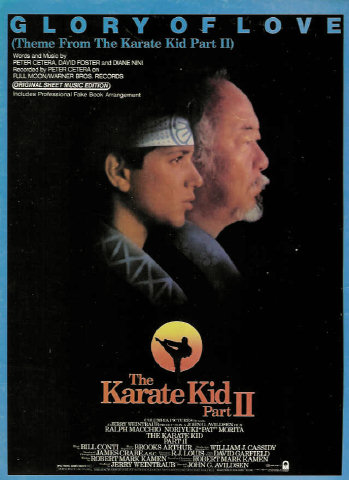
On the "cheesometer" this may rank pretty high, and I would not necessarily disagree; "Like a knight in shining armor from a long time ago (as opposed to recently). Just in time I will save the day take you to my castle far away". If you really want to be horrified just watch the video... I will say no more. The fact is most of the song is, lyrically speaking, rather generic; it is only when you get to the chorus that you start to see something altogether different; "I am a man who will fight for your honor...We'll live forever knowing together that we did it all for the glory of love." The image of defending a woman's honor may seem like an insignificant (if not anachronistic) detail, but it is anything but that. It is true, you cannot see "honor" or touch it; nevertheless, it is no exaggeration to say that "honor" lies directly at the heart of everything that we mean when we talk about dignity and respect. It is not so much something that we defend in ourselves, as it is something that we defend in others. In this particular song (which was written for the sequel to the Karate Kid), a damsel, through no fault of her own, is being threatened by some unsavory character. The protagonist (Daniel son) must intervene in order to defend this woman from some form of bodily harm. As the scene suggests, honor may not be something you can point to specifically, but it certainly is something worth dying for. The latter part of the chorus also reveals something interesting; "We'll live forever knowing together that we did it all for the glory of love." To what end are they enduring all of these trials? For each other? Yes; but also, according to the song, for a "greater glory"; a glory that is everlasting. Although he says no more about it, the line would suggest that their love is meant to be a kind of tribute, an offering, an act of thanksgiving for the exquisite pleasure of being a part of- in some small way- the grander narrative of Love.
7. Arthur's Theme - Christopher Cross

On a less sublime level, though no less integral to defining romance, Arthur's Theme describes that intoxicating feeling of meeting the person that you believe to be "the one"; "Once in your life you find her, someone that turns your heart around, the next thing you know you're closing down the town." What can compare to that incomparable feeling of meeting someone that revives us and makes us believe that anything is possible. It is a feeling that can make you behave in ways that only a saint, or an ascetic, might be able to appreciate. When this feeling of love comes over you, you can't eat, you don't sleep- though not out of sorrow- but like a St. Francis, you do so out of a romantic enthusiasm. The chorus heightens this sense of romantic intoxication by implying that even the whole natural order seems to be in on this conspiracy of love; "When you get caught between the moon and New York City, I know its crazy but its true. When you get caught between the moon and New York City; the best that you can do is fall in love." And indeed, when love is running on all cylinders, it is not only you who affirm it, but all of the created order seems to join in as well.
6. The Way You Look Tonight - Frank Sinatra and Wonderful Tonight - Eric Clapton

I lied a little when I said that I wouldn't include any song that was written before 1970. Just the Way You Look Tonight was written in 1936 (Sinatra performed it much later, however, and it is my preferred version) and has been covered numerous times. Wonderful Tonight was written in 1977. At any rate, I selected both of these classics, not because I like them equally (without question, I prefer the former to the latter), but because the message of each are both similar and salient. There is only one insult that no man minds hearing, "You married above yourself..." The point is a man doesn't mind being thought less of, as long as it is because they think that his wife is beautiful. That is what both these songs are about in a nutshell. Both are devoted almost entirely to that special moment of awe when a man realizes just how beautiful and "wonderful" his wife is- and then subsequently realizes just how lucky he is to be with her; "We go to a party and everyone turns to see, this beautiful lady, who's walking around with me." In her presence, he is just a third person dude that happens to be there with her. On the surface, this might seem to be a downgrade, especially for a man that wants to be regarded in his own way, but for the poet and the romantic, this "down grade" is an upgrade. Another important aspect of both of these songs is the element of memory. Everyone has a night that they will probably remember for the rest of their lives, a night that represents perfection for them; "Someday when I'm awfully low, when the world is cold, I will feel a glow, just thinking of you, and the way you look tonight." It is ultimately the type of memory that could make the cold of a prison cell seem warm and bright.
5. In Your Eyes - Peter Gabriel
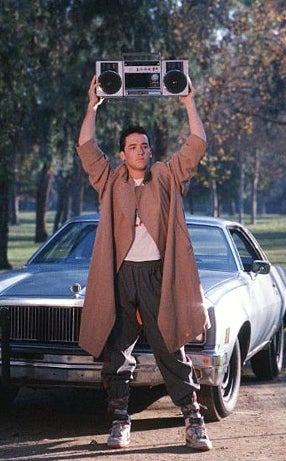
The lyrical force of this song lies in the slow lamenting build up of the verse, transitioning into the flurry of beautiful images in the chorus. The verse concerns itself with the strifes and struggles of love, and how sometimes love is a survival rather than a marathon of bliss; "Love, I don't like to see so much pain. So much wasted, and these moment keeps slipping away. I get so tired working so hard for our survival. I look to the time with you to keep we awake and alive." What he expresses here is not just some feeling of warmth towards a woman, but something far more profound. As much work and struggle as the relationship requires, in truth it keeps him "awake and alive". But if there is any doubt that this woman is worth all of the work that is necessary to keep relationship "alive," then the chorus should relieve us of any of those concerns; "In your eyes, the light the heat, I am complete. I see the doorway of a thousand churched; the resolution of all my fruitless searches." Though it may seem contradictory, there is no real contradiction of sentiments here. Love requires constant struggle and effort to keep it "awake and alive". And furthermore, it is in that struggle that we come to realize that unavoidable truth that love isn't really love until it's been tested. The chorus is so charged with grandiosity, that one almost gets the impression that this woman represents for him almost a kind of religious experience. Like many of these romantic ballads, you could easily substitute God for the woman that he describes. And indeed, this is an appropriate parallel, for in both cases (faith and love), the role of one's beloved is to lead them to salvation.
4. Lady in Red - Chris DeBerg

In some ways the theme of this song is to the one at #6- for the vocalist seems rather enamored with one very special lady in red; "I never will forget, the way you look tonight." However, my intention is not repeat an angle that has already been covered, but rather to tell the romantic back story about this woman that he claims he "hardly knows". This "stranger" is in truth not a stranger at all. The woman he describes in the song is in fact his wife. So then why does he describe her as a stranger? Was this the first time he ever met her? No. The story goes that he was out to dinner, and saw this beautiful woman in a red dress that he couldn't stop looking at; a woman who he eventually came to realize was his wife. Apart from the basic appeal of a man talking about the beauty of his wife, this song expresses a sentiment that is essential if one intends to keep romance alive in a relationship . Every man should take a cue from Chris DeBerg on this one. What I am saying is that one of the ways a romance thrives is through the imagination of the two parties involved. Just as a new angle allowed Chris DeBerg to see his wife for the first time again, we too must do everything in our power to try see our beloved from a new perspective, a perspective that reminds us why we fell in love in the first place.
3. Harvest Moon - Neil Young
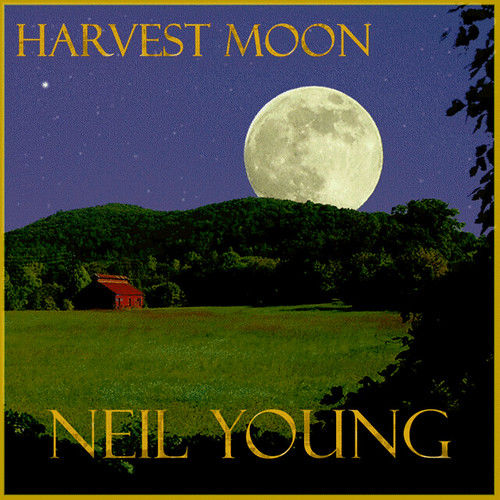
Neil Young has always seemed to me like an old man (no pun intended); in part because he has a kind of wizened air about him, but also because he just sounds old and rusty; not in a bad way, mind you, but in the sense that he is almost like an Ent; timeless. Harvest Moon is one of those stories, not so much about first love, as it is about love that is a little like aged wine. In other words, the years have not worn away this love. To the contrary, the years have given it more depth and richness, without removing any of the original sweetness; "When we were strangers I watched you from afar. When we were lovers, I loved you with all my heart. Now it's getting late, and the moon is gettin' high. I want to celebrate, see it shinin' in your eye. Because I'm still in love with you, I want to see you dance again. Because I'm still in love with you, on this harvest moon." Exquisite. Few things are more romantic than the notion of a love that endures. Throw in the image of the harvest moon "shinin' in her eyes" as she dances, and what you have is a romantic masterpiece.
2. Mad About You - Sting

I chose this song because it includes not only divine imagery, but the earthly kind as well. As a matter of fact, the song is down right cosmic in its implications; "A stone's throw from Jerusalem, I walked a lonely mile in the moonlight, although a million stars were shining, my heart was lost on a distant planet, that whirls around the April moon, whirling in an arc of sadness. I'm lost without you. I'm lost without you. Though all my kingdoms turn to sand and fall into the sea. I'm mad about you. I'm mad about you." Many of Sting's lyrics have a literary bent to them. On his solo albums, especially the Soul Cages, there is a distinct chivalric bent. For Sting, love is not merely a powerful emotion, but a cosmic struggle. Everything is either fighting in favor of it, or is tearing it apart. As for us, we are all apart of this cosmic conflict, whether we like it or not. At the heart of this struggle, however, there is one force, one more powerful than any another, and it holds the key to our ruin; "And I have never in my life felt more alone than I do now. Although I claim dominion over all I see, it means nothing to me. There are no victories, in all our histories without love." As Sting points out here, whether you're talking about the history of the world, the kingdoms of the earth, or the movement of the spheres; all of it is irrelevant in the absence of love. Without love, even the most extraordinary things lose their meaning; "And though you hold the keys to ruin of everything I see. With every prison blown to dust my enemies walk free. Though all my kingdoms turn to sand and fall into the sea. I'm mad about you. I'm made about you."
1. Bargain - The Who
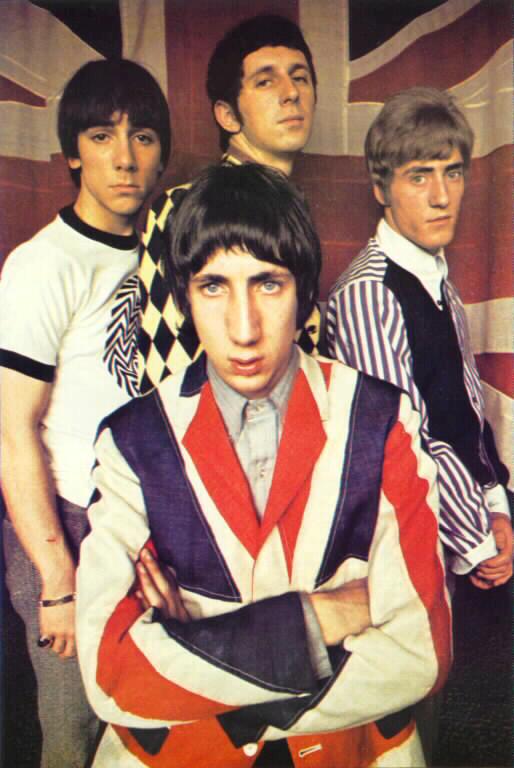
Some may be surprised that The Who would make #1 on the list of most romantic songs. But whether or not The Who may be thought of as a romantic band, this song, lyrically speaking, is the perfect piece. In a most remarkable way it sums up everything one needs to know about love, romance, and chivalry. What really sets it apart is that it, unlike any of the other songs, seems to be able to encapsulate and articulate the irony and absurdity of the lover. The lover is fundamentally a fool, and he is a fool because he is willing to do the most unpleasant things in order to win over his beloved; "I'd gladly lose me to find you. I'd gladly give up all I had. To find you I'd suffer anything and be glad. I'd pay any price just to get you. I'd work all my life, and I will. To win you I'd stand naked, stoned, and stabbed. I'd call that a bargain, the best I ever had." Certainly the fact that he is willing to endure all these things to win over his beloved is magnificent, but there are other songs which describe to what great lengths an individual might go to prove his love. What distinguishes this one is not only the fact that he would endure all things, but that he would be "glad" in doing so. In fact, he would even call that a "bargain". It is in some ways reminiscent of what St. Paul had to say about suffering; "I consider that the sufferings of this present time are as nothing compared to the glory that is to be revealed to us." (Romans 8:18). It would not be an exaggeration to say that it is this insight that generally only the mystics and the most generous people understand. Some may call it masochistic, some may call it strange, but for the true lover, it is merely justice. If he is to feel at all worthy to stand beside this incomparable beauty, he must offer some form of oblation or sacrifice that is equal to the dignity of this individual (though the secret of the romantic is that he never deems himself adequately worthy). And as if that weren't enough to chew on, Townsend then articulates something about the nature of love that is rarely understand in theology, much less articulated in a rock song; "I sit looking 'round. I look at my face in the mirror. I know I'm worth nothing without you. In life, one and one don't make two; one and one make one." Wow, you could do a theology class on this song alone. There are not many songs that I would accuse of having blatant Trinitarian imagery, but this is one of them. In any case, he seems to understand quite well that by ourselves we are not really ourselves, it is rather in the exchange of love with another that we really begin to comprehend who and what we are.
Honorable mention goes to Dire Straight's "Romeo and Juliet"; Boz Scagg's, "Look What You've Done to Me"; David Gates, "The Goodbye Girl"; Genesis, The Script, "For the First Time"; When in Rome, "I Promise"; The Proclaimer, "500 Miles". The last two have similar themes which, were I to do this list again, would certainly be included. In this case the romance is about the literal "length" the artist would travel to win the heart of their beloved.


